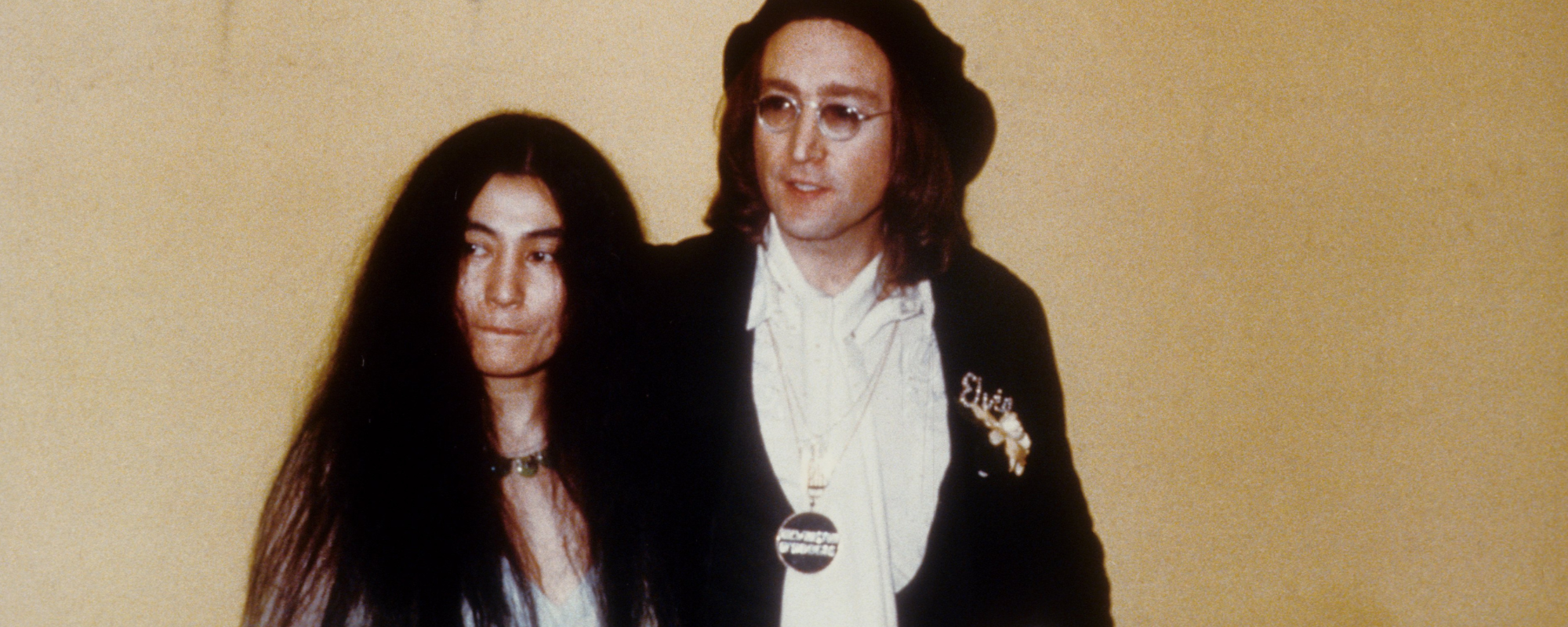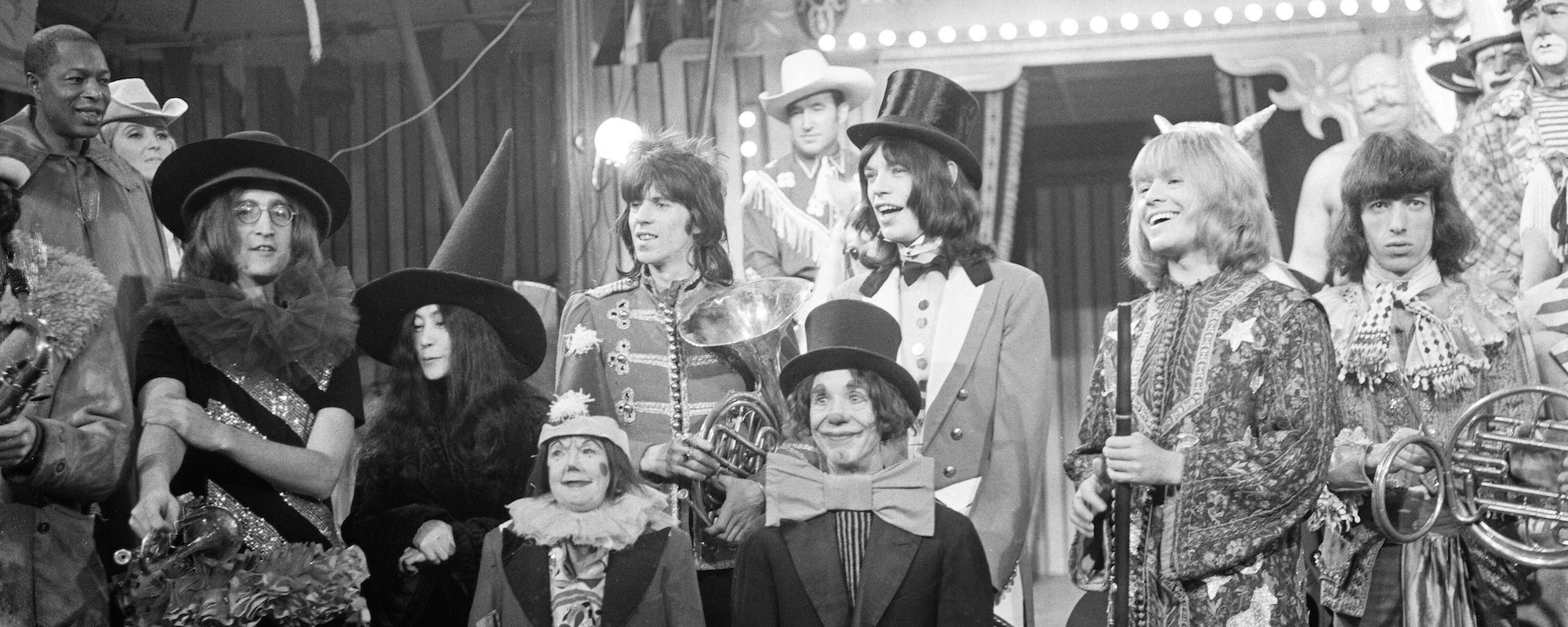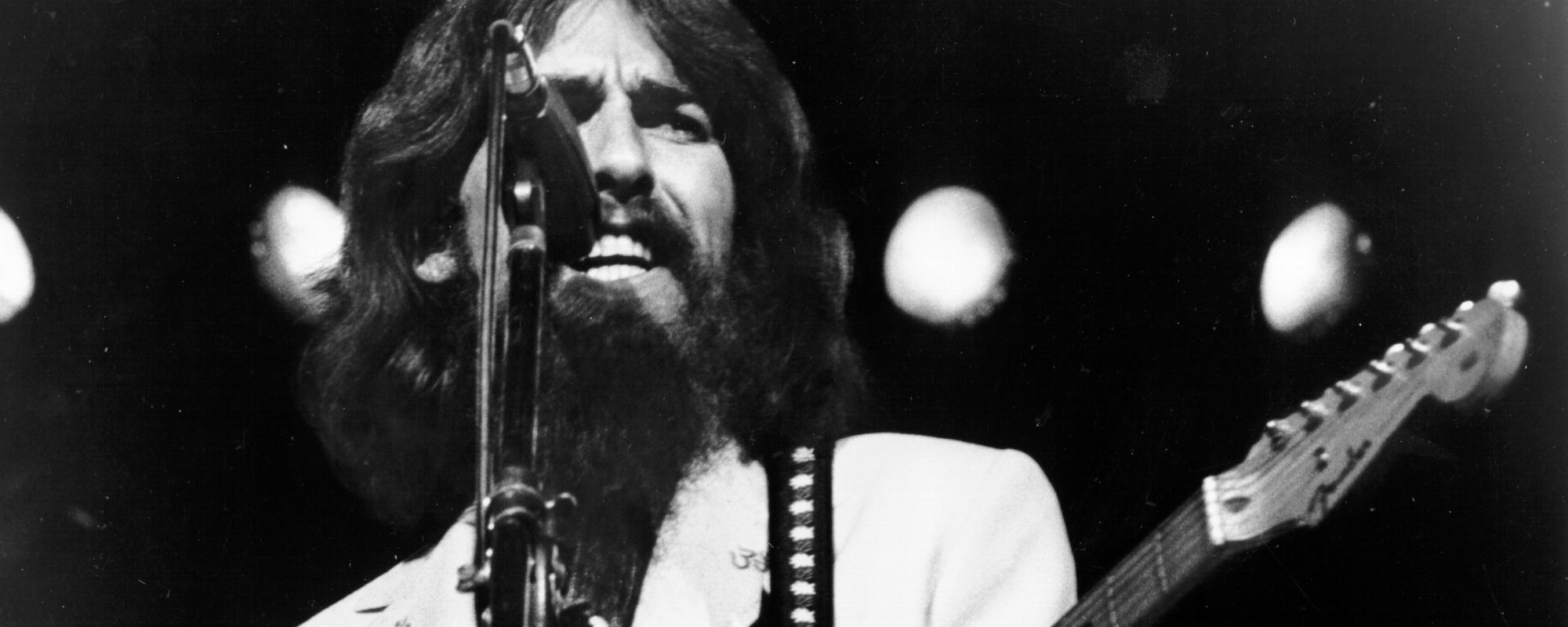John Lennon wrote plenty of songs with ornate lyrics that you can pore over and discuss the meaning for hours. With “Oh Yoko!” the closing track off his 1971 masterpiece album Imagine, he went at his subject matter in as simple and direct a fashion as possible, and still managed to make quite a memorable statement about his love for Yoko Ono.
Videos by American Songwriter
What was “Oh Yoko!” about? When did Lennon first compose the song? And why did he neglect to release the catchy number as a single? Let’s find out all the details about this classic track, as long as we’re not interrupting you in the middle of a shave.
A Song Long in the Making
When you hear “Oh Yoko!” it’s easy to associate it with the solo John Lennon years, considering how focused and personal it was in relating to his marriage to Yoko Ono. But Lennon actually started it all the way back in 1968 while The Beatles were still very much an ongoing interest, specifically during their time in India where they wrote many of the songs for The White Album.
At that point, it didn’t have too much other than music. But Lennon kept after it, and he was eventually filmed playing the song (with Yoko harmonizing) in a Bahamas hotel room in 1969. It seems likely he chose not to include it on his first proper solo album (John Lennon/Plastic Ono Band in 1970) because of how the bright, upbeat “Oh Yoko! contrasted so drastically with the unremittingly dark songs on that record.
By the time Lennon set about making the 1971 album Imagine, which would find him embracing a little more lightness and a return to a florid pop sound not unlike his Beatles days, “Oh Yoko!” was a much better fit. In fact, he thought enough of the recording to give it pride of place as the final song on what would turn out to be the most popular solo album of his career.
In the studio, Lennon took advantage of the excellent session players on hand. They included his old buddy from the Hamburg days Klaus Voorman chipping in the rubbery bass line and Alan White offering a peppery drum beat. Most distinctive of all is the chiming piano part delivered by Nicky Hopkins, whose session work often found its way onto the albums of many of the leading lights of British rock.
When you hear “Oh Yoko!”—which also features Lennon sounding at home in his falsetto range—you might wonder why it wasn’t a single. You have to remember this was a time when singles and albums were often kept separate. As a matter of fact, no singles were released from Imagine in the UK, and only the title track came out in the U.S.
Lennon addressed his reasoning for this decision in a 1980 interview, as reported by The Beatles Bible. (For clarification, although he’s talking about “Oh Yoko!” in the beginning of the quote, the song he’s talking about at “No. 2” is actually “Imagine,” and he was off a bit in that the song only made it to No. 3 in the U.S.):
“It’s a very popular track, but I was sort of shy and embarrassed and it didn’t sort of represent my image of myself as the tough, hard-biting rock ‘n’ roller with the acid tongue. Everybody wanted it to be a single—I mean, the record company, the public—everybody. But I just stopped it from being a single ’cause of that. Which probably kept it in No. 2. It never made No. 1. The Imagine album was No. 1, but the single wasn’t.”
What is the Meaning of “Oh Yoko!”?
Well, it doesn’t take much detective work to discover that “Oh Yoko!” is an open-hearted tribute from John Lennon to wife Yoko Ono. The cleverness of the song lies in how he goes about it. His verses relate all the different instances when he feels the need to call out to her, his dependence on her absolute.
Some of those instances are a bit cheeky, like when he’s in the middle of a bath or shave. But there’s something beautiful about how he calls out for her in the middle of a dream, and something so telling about how he does the same in the middle of a cloud, the latter phrase suggesting a bout of depression.
Lennon also promises throughout that My love will turn you on, going back to a phrase that he famously used in “A Day in the Life.” Then it referred to a drug trip, but here it’s nothing less than a testament to love’s infinite capabilities. Simple, direct, and haunting, “Oh Yoko!” shows how John Lennon could do so much with so little.
When you purchase through links on our site, we may earn an affiliate commission.
Photo by Michael Ochs Archives/Getty Images












Leave a Reply
Only members can comment. Become a member. Already a member? Log in.